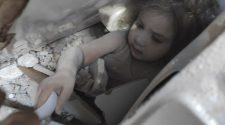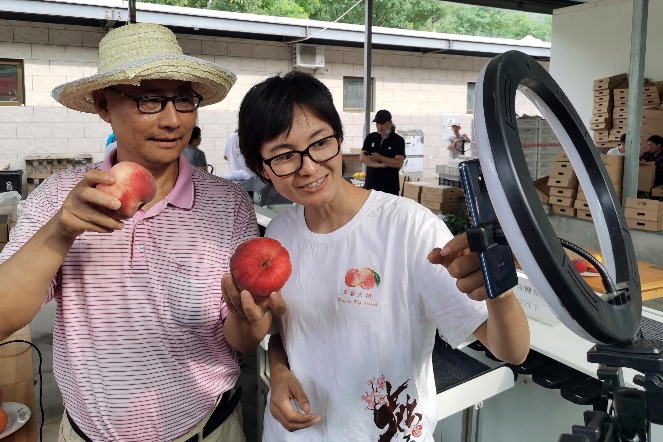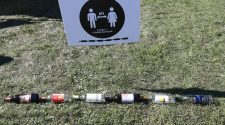Local governments in Beijing have been making efforts to provide accurate, scientific and smart services to meet the demands of local farmers to help them get richer.
Pinggu, a district in northeastern Beijing, has been making use of the internet and e-commerce to promote local peaches, as online shopping has become increasingly popular.
Yue Qiaoyun decided to go back to her hometown in Pinggu after graduation from college. She joined the peach trading industry by selling them online, including through livestreaming promotions.
“I’m glad that I can help my neighbors make more money and be happier,” she said.
Ma Chaoying, head of Liujiadian town in Pinggu, said the district has delivered 1.8 million online orders of peaches since June, bringing a total income of 120 million yuan ($17 million) for local farmers.
The government has organized e-commerce experts to train farmers to transform the local peach farming industry into a modernized internet-plus business.
Hu Dianwen, 60, a local farmer, produces 25,000 kilograms of peaches annually. His income had soared from 40,000 yuan four years ago to 150,000 yuan in 2020, he said.
“I can now afford the education cost of my two kids,” he said. “I’ve also built two houses and one apartment through my hard work.”
The neighboring Miyun district, which is well-known for its good natural environment such as fresh air and clean water, has eyed developing businesses such as beekeeping and folk cultural tours in the countryside.
Tian Shuge, a local bee farmer in Longtangou village in Miyun, has been with the bee-raising industry for more than 30 years. She said she has made more money after joining the cooperation group in the village.
To better help bee farmers, the district government has introduced beekeeping experts to offer training and provided financial aid to support 30 projects involving the bee business with an investment of about 100 million yuan to make beekeeping standardized and industrialized, according to the local government.
“My annual income has been increasing in recent years and it is more than 300,000 yuan at present,”Tian said with a big smile.
Miyun has the largest beekeeping area in Beijing, with 2,072 bee farmers tending 115,000 colonies that account for 44 percent of the city’s total, according to official data.
To improve the good local environment, the district government has upgraded more than 300 houses and encouraged villagers in recent years to develop folk tourism.
Xie Ze, a local farmer who once worked as a cook outside of the town, has come back to Miyun and now runs a home-stay hotel and provides catering for visitors.
“I can serve 2,000 tables a year and earn an annual income of 400,000 yuan,” he said.
Zhao Ming contributed to this story.












